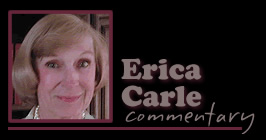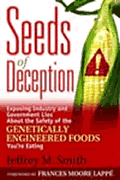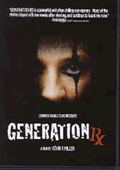PART 2
Erica Carle
September 5, 2010
NewsWithViews.com
Chamber of Commerce - Change Agent Since 1912
In the 1930s and 1940s the Chamber of Commerce blanket organizations went for planning in a big way. Control of supply and demand was seen as the answer to "problems" of unequal distribution. Unequal distribution was seen as the main cause of war. The quotes that follow are but a few examples of plans for change proposed by the U. S. and International Chambers of Commerce.
"America thus far has trusted to rugged individualism, but now that rugged individualism is selling below par, America is beginning to think more realistically. Men like John Dewey, Charles A. Beard, and Stuart Chase are spreading the idea of planning. Mr. Swope of the General Electric Company has widely publicized his plan to organize the various industries in national units under government supervision. According to Mr. Swope's plan, industries employing over fifty men and failing to come into the plan within three years would be compelled to do so.
"The United States Chamber of Commerce has conducted a national referendum on a programme and, as a result, the Board of Directors has voted in favour of a national voluntary economic council. The Chamber would modify the anti-trust laws so as to legalise combinations that could control supply in relation to normal demand. Government tribunals are called for, with power to control production in certain natural resources, such as coal, oil, lumber, and copper. The plan also includes private and voluntary unemployment insurance. The plan of the Chamber of Commerce is interesting, as showing the growing recognition of the need for planning. Excepting the Russian system, the 'New Deal' is the world's largest effort at planning."[1]
In 1933 the U.S. Chamber of Commerce was a leading promoter toward restoring diplomatic relations with Russia:
"In November of 1933 when Maxim Litvinov, at Roosevelt's invitation, arrived on the liner 'United States' for nine days of historic conferences, Watson (NOTE: Thomas J. Watson of IBM) welcomed the event . . .
"After an exchange of eleven letters and one memorandum between representatives of the U.S. and Soviet governments, signifying the restoration of diplomatic relations, Watson spoke at a farewell dinner for Litvinov at the Waldorf-Astoria Hotel in New York. On hand with the diplomats for the festivities were executives of the House of Morgan, the Chase National Bank, the Pennsylvania Railroad, and other converted titans of finance and industry. Acknowledging the fact that something less than national unanimity greeted the re-entry of Russia into America's sphere of non-Communist influence, Watson urged every American to 'refrain from making any criticism of the present form of government adopted by Russia.
"Many leading businessmen winced, and some of the more viscerally reactive editorial writers howled, but as President of the American Chamber of Commerce, Watson was listened to."[2]
The following was included in the resolution adopted by the ninth congress of the International Chamber of Commerce.
"In all countries, the rapid progress of science and invention, and modern methods of production and transport would permit of the standard of living being greatly improved, provided the world would cooperate in rational distribution.
"For such cooperation to be effective, it is necessary that each country, while taking the responsibility of developing its own economy, should be ready and willing to contribute its share, out of its own national resources and productive capacity, to the aggregate of goods and services which constitute the real income of the world. This contribution of each to the welfare of all can only be fully effective if the world is brought into the position in which the international exchange of goods and services as well as migration can take place under favorable conditions."[3]
Economic development as promoted by the International Chamber of Commerce in 1939 meant redistribution of the wealth of the world:
"The Chamber advocates procedure and policies which will render unnecessary the movements of armies across frontiers and which will substitute therefore the increasing movement of goods, services and capital. Believing that the door to peace is still open, its objective is to help people everywhere to convert their longings for peace, security and prosperity into a practical program of economic adjustment and human understanding.
"Thus declaring its aims, the International Chamber recommends:
"That the governments of France, Germany, Italy, Japan, the United Kingdom, and the United States of America, each collaborate, insofar as this is not the case already, with their own leading business men in a thorough study of the economic and fiscal condition of their individual countries with respect to their national needs and their possible contribution to the world's economic development.
"That when these countries shall have completed their surveys, their economic experts meet for the purpose of formulating a plan of adjustment which will give all countries of the world a fair opportunity to share in the resources of the world.
"For the accomplishment of this purpose, the facilities of the International Chamber of Commerce are available if desired."[4]
The Chamber of Commerce kept an office in Stockholm throughout WWII as a center of postwar economic planning. On Nov. 10, 1939 plans for its Committee on International Economic Recovery were drafted at the first wartime meeting of the Chamber's governing council that was held in Amsterdam. Forty delegates attended from twenty-one countries, including nations at war with each other. One participant commented:
| Subscribe to the NewsWithViews Daily News Alerts! |
"To see Englishmen, Frenchmen and Germans sitting around the same table at this moment was a bit uncanny, but somehow it struck me as indicative of the Chamber's fundamental strength."[5]
"The Committee for Economic Reconstruction was organized by the International Chamber of Commerce and is sponsored by the Carnegie Endowment for International Peace . . . Our Committee is making studies by which we hope to develop plans for distribution of the resources of the world on a basis that will be fair to all countries. "[6]
For further information on Chamber of Commerce
1
- The
Chamber of Commerce Its Power and Goals by Erica Carle
2 - The Chamber
of Commerce Blanket Over the World by Erica Carle
[Read Erica Carle's books: Why Things Are The Way They Are. and "Give Us The Young"]
Click here for part -----> 1, 2,
Footnotes:
1.
"Introduction To A Planned Society" Speech by Dean Curtis W.
Reese, Th.G., Ph.B., D.D. at the World Fellowship of Faiths which was
held in Chicago in 1933 in conjunction with the Century of Progress World's
Fair. World Fellowship, Edited by Charles Frederick Weller, Liveright
Publishing, P. 97.
2.
Think, by William Rogers, Stein & Day, 1969. P109.
3.
THINK, August, 1937
4.
Thomas J. Watson, speaking as President of the International Chamber of
Commerce in a world-wide radio address from the Chamber's Tenth Biennial
Congress at Copenhagen, Denmark on June 28, 1939. THINK, July, 1939
5.
Merchants of Peace, George L. Ridgeway, P. 138.
6.
Thomas J. Watson, President of IBM and Hon. President of the International
Chamber of Commerce on May 27, 1940 at the Golden Gate International Exposition.
� 2010 Erica Carle - All Rights Reserved
Sign
Up For Free E-Mail Alerts
E-Mails are used strictly for NWVs alerts, not for
sale
Erica Carle is an independent researcher and writer. She has a B.S. degree from the University of Wisconsin. She has been involved in radio and television writing and production, and has also taught math and composition at the private school her children attended in Brookfield, Wisconsin. For ten years she wrote a weekly column, "Truth In Education" for WISCONSIN REPORT, and served as Education Editor for that publication.
Website: EricaCarle.com
E-mail: hist.detective@yahoo.com











 Share
This Article
Share
This Article






